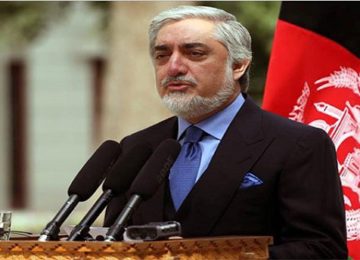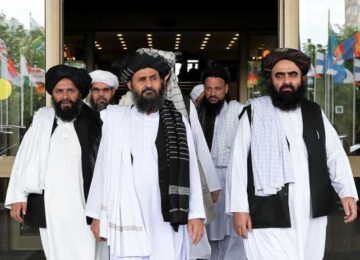Jared Kushner and Steve Bannon are set to formulate the military strategy for Trump’s America in Afghanistan. Kushner has no experience of military or foreign policy making. Bannon, on the other hand, was a junior naval officer later having served for a short time on the National Security Council. He was removed by McMaster as being unqualified for the appointment.
Trump is understandably frustrated at the way war in Afghanistan has gone for America in spite of the resources committed and loss of recorded 2,400 American soldiers’ lives. Afghanistan remains politically unbalanced, without viable state infrastructures to run sans external help. He is understandably looking for alternate military and diplomatic options- should out sourcing US military presence to contractors be one of them?
As per New York Tines Jared Kushner and Bannon are now in the mix for formulating new Afghan policy. Kushner sought the advice of Stephen A. Feinberg the owner of DynCorp International military contractors and Erik D. Prince who founded the security firm Blackwater Worldwide. Both suggested the option of replacing the US military with private security contractors.
Why is this bad idea?
First, it can create to financial and operational headaches. Trump will be well reminded of the fact that DynCorp International filed for alleged over-billing for a four year period in Iraq where it was in contract with the US State Department for training the Iraqi police. “As well as the hotel costs, Corporate Bank is alleged to have inflated the labor costs for personnel it supplied DynCorp for security and transport, resulting in the state department paying what the complaint says is over $1m in false claims while DynCorp “profited by recovering its own markups and fees on its subcontractor’s inflated charges”. (The Guardian Newspaper)
Four Blackwater guards were awarded for firing into Baghdad’s Nisour Square on Sept. 16, 2007 were awarded sentences (giving imprisonment to one and 30 years each to others) for killing unarmed civilians. “The friendly governments installed in Kabul and Afghanistan insisted on Blackwater and its ilk leaving their countries.” (Los Angeles Times, July 20, 2017)
It is the right of citizens of a nation to know what the government is doing in another country on taxpayers’ money. Outsourcing makes transparency of costs and operations questionable.
“By the twentieth century, only those places with legacies of imperialism or temporary shortages of manpower deployed soldiers-for-hire, and the list of such exceptions (for example, Saudi Arabia, Libya, Angola, and Nigeria) matches a list of global trouble spots.” (Outsourcing Power: How Privatizing Military Efforts Challenges Accountability, Professionalism, and Democracy: Martha Minow)
Second, it can cause diplomatic headaches. The security contractors do not have the locus standi to engage governments of other nations in negotiations and in eliminating these important players from the given equation cannot lead to a political settlement of the issue. A war that is outsourced lacks transparency and is not interwoven with the long and short term objectives of its employer. The main interest of hiring these mercenaries is in conflict with that of those hiring. These firms are not cognisant of the laws of war. The world today is one that is legally accountable – any misstep caused by security contractors (history proves there were numerous with disastrous consequences) can lead to a diplomatic mess.
Third the presence of security contractors in lieu of US soldiers themselves will not offer a degree of comfort to the local population either. They were viewed with resentment and unease by the local population when in Afghanistan before. To jog readers’ memories a C.I.A contractor in June 2003 in Afghanistan was charged with the death of an Afghan man who was then in custody. Also, many years ago employees of DynCorp had hired child prostitutes in Bosnia. The culprits were packed home upon discovery instead of facing the law as they should have. The element of accountability will be low. This decision can only make murky waters murkier creating confusion between line of authority and decision implementation.
How will Pakistan react to presence of these mercenaries in her backyard? Very badly, rest assured. In spite of Pentagon refusing to reimburse military expenses for last year to Pakistan, the powerful military of Pakistan is unrelenting. Increasing space to India in Afghanistan has already stepped up the ante – this decision by Trump may be the last straw to push Pakistan into Russia’s arms.
The Nation, a New York based magazine, had taped Eric Prince, owner of Blackwater, in University of Michigan acknowledging its presence and working in Pakistan. As per reports, since Bush started the GWOT, Blackwater undertook illegal missions the government’s various organs could not due to restraints by the Congress. Jeremy Scahill, author of the New York Times Best Seller Blackwater, in his article “The Secret US War in Pakistan” wrote that, “At a covert forward operating base run by the US Joint Special Operations Command (JSOC) in the Pakistani port city of Karachi, members of an elite division of Blackwater are at the center of a secret program in which they plan targeted assassinations of suspected Taliban and Al Qaeda operatives, ‘snatch and grabs’ of high-value targets and other sensitive action inside and outside Pakistan.”
Trump is an unconventional President. Right! But he needs to understand the line between un-conventionalism and sheer stupidity!
View this article on CRSS blog.
The writer is a lawyer, academic and political analyst. She has authored a book titled ‘A Comparative Analysis of Media & Media Laws in Pakistan.’ She can be contacted at: yasmeenali62@gmail.com and tweets at @yasmeen_9








